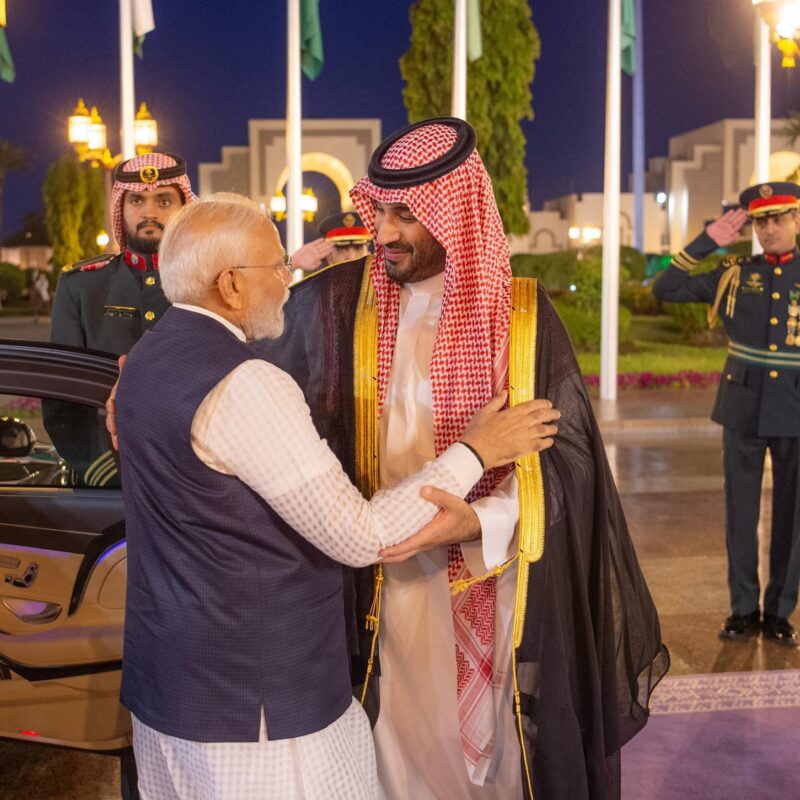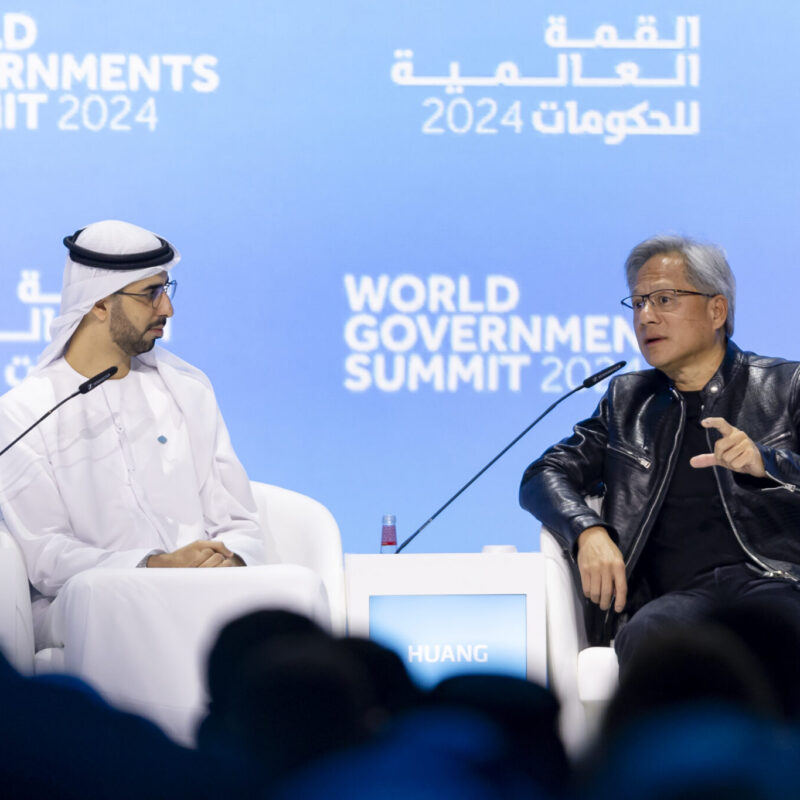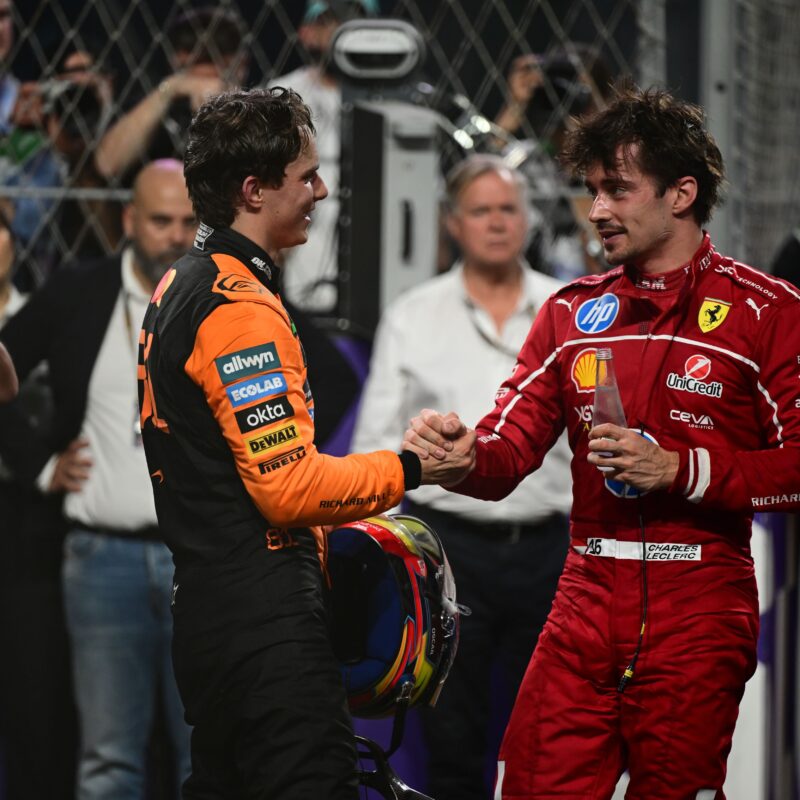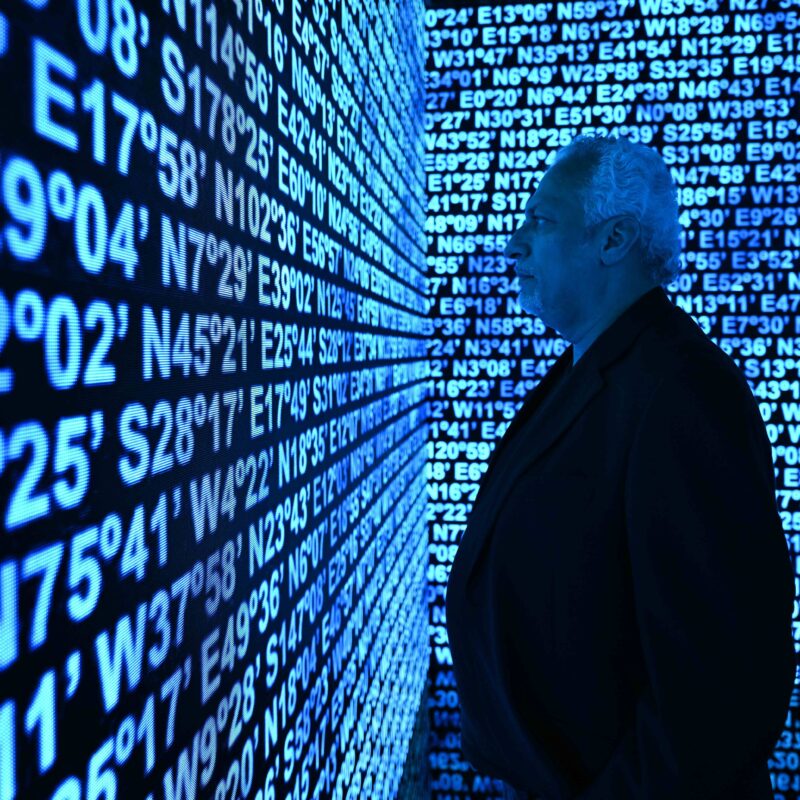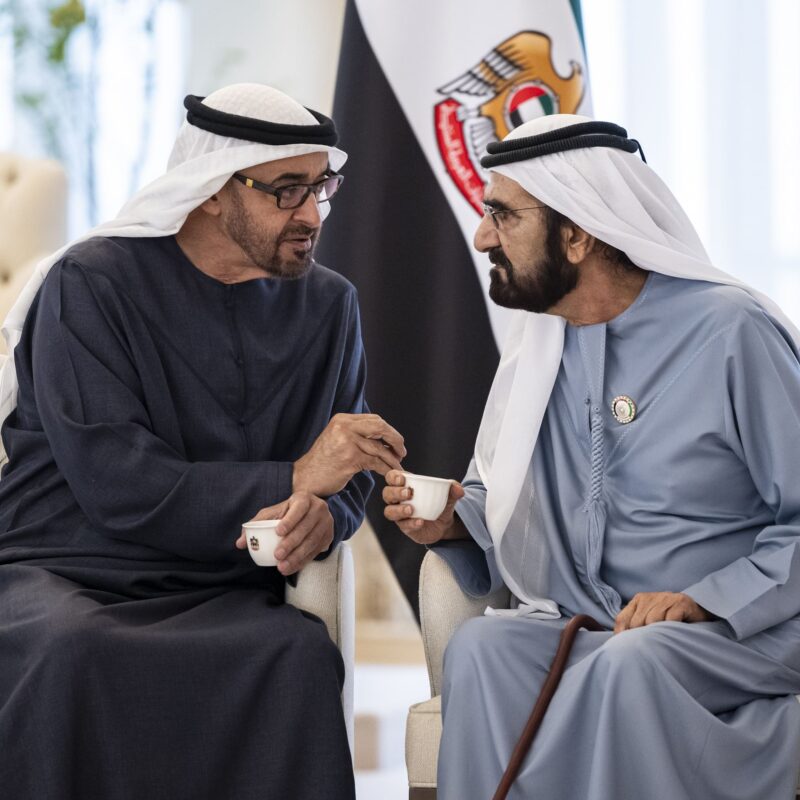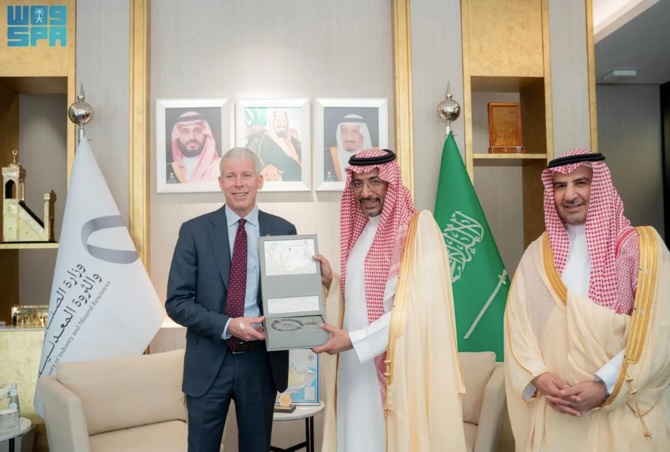The Weekly Circuit
👋 Good Monday morning in the Middle East!
For the next two weeks, Egypt will be at the center of global efforts to avert environmental disaster as it plays host to the annual United Nations summit on climate change, COP27. Much has changed since last year’s event in Glasgow, Scotland, where pressure built on countries to adhere to the U.N. goal of net zero greenhouse gas emissions by 2050. Since then, world oil and gas supplies have been slashed in the wake of Russia’s invasion of Ukraine. Europeans are bracing for a cold winter while making supreme efforts to procure energy supplies made from fossil fuels.
Among world leaders who are scheduled to address the conference in the Egyptian resort town of Sharm el-Sheikh are U.S. President Joe Biden, U.K. Prime Minister Rishi Sunak, French President Emmanuel Macron and U.N. Secretary General António Guterres. No-shows include Russian President Vladimir Putin and Chinese President Xi Jinping. Leaders attending from the Middle East are Egyptian President Abdel Fattah El-Sisi; Israeli President Isaac Herzog; Jordan’s King Abdullah II; and Sheikh Mohammed bin Zayed, president of the United Arab Emirates, which will host next year’s summit.
Bibi’s back. Benjamin Netanyahu, Israel’s longest-serving leader, won last week’s election and will most likely return to the prime minister’s residence in Jerusalem after 16 months of leading the Knesset’s opposition. Netanyahu’s coalition, which will almost certainly include right-wing leaders who regularly demonstrate hostility to Palestinians, has put Arab leaders on alert. Experts say it may slow down some areas of cooperation with the United Arab Emirates and Saudi Arabia, though the normalization agreements known as the Abraham Accords will likely withstand the pressure.
An advisor to Bahrain’s King Hamad bin Isa Al Khalifa, on the other hand, told reporters that Netanyahu’s victory “was normal and always expected,” adding, “We will stick to our agreement and we expect it to continue in the same line and continue building our partnership together.” Lebanon said it has an insurance policy against Netanyahu trying to neutralize the maritime gas deal with which it agreed upon with Israel through U.S. mediation. As opposition leader, Netanyahu criticized the agreement and said he wouldn’t be bound by its terms. Lebanon’s chief negotiator said he obtained “sufficient American guarantees that this deal cannot easily be canceled.”
One of Netanyahu’s top aides in a previous term was Eli Groner, now managing director in Israel for Koch Disruptive Technologies and one of the most sought-after funders of startups. In an Investor Spotlight, The Circuit reports that the firm, owned by the politically conservative Koch family, has dispensed close to $1 billion to 14 companies in Israel and is scouting for others engaged in “creative destruction” of industry norms.
Welcome to The Weekly Circuit, where we cover the Middle East through a business and cultural lens. Read on for the stories, deals and players at the top of the news. Please send comments and story tips to [email protected].
Spread the word! Invite your friends to sign up.👇
INVESTOR SPOTLIGHT
Koch’s Israeli investment chief aims to disrupt venture capital funding
Eli Groner meets with hundreds of startups each year as the managing director in Israel for Koch Disruptive Technologies, which since 2018 has doled out almost $1 billion to emerging Israeli companies. For the fraction of those deemed disruptive enough to get funding, KDT, the venture arm of gigantic U.S. conglomerate Koch Industries, sees itself as a devoted ally that doesn’t expect quick returns, Shoshanna Solomon reports for The Circuit.
Partner forever: “We are patient capital,” Groner told The Circuit during an interview at the firm’s 35th-floor Tel Aviv office overlooking the Mediterranean. “We invest with the expectation that we are going to partner with them forever or for at least for 10 years. Now, that is not always the case, but that is certainly the way we look at it when we make an investment. So, we want to work with people that are high integrity, resilient, committed and playing the long game.”
Netanyahu aide: Dressed in a light-blue button-down shirt and tailored tan trousers, the American-born Groner has business experience and an insider government background that impressed KDT when the firm opened its Israel office three years ago, the only one outside the United States. Now 52, he spent three years as a top aide to then-Prime Minister Benjamin Netanyahu, serving as director-general of the Prime Minister’s Office. Any political savvy he gained in government has been useful in representing Koch Industries, whose owners are among the biggest contributors to right-wing causes in the U.S.
Shared vision: Koch Industries had revenue last year of more than $125 billion and 120,000 workers worldwide. KDT’s first foray in Israeli startups — and first ever investment — was $100 million in backing for Insightec to which it later added an additional $100 million. When it first funded Insightec, KDT didn’t have an office in Israel. On a visit to meet industry players, company executives had an encounter with Groner, fresh out of the Prime Minister’s Office, who offered a geopolitical overview of Israel and the region. “We really connected on vision and values,” Groner said. “Six months later I got a formal offer to join KDT and open up the Israel office.” Groner has since led KDT’s investments in 13 Israeli startups that operate in fields ranging from health care, semiconductors and cybersecurity to manufacturing and agriculture.
Regional opportunity: Groner’s efforts come during a period when Israel is forging new partnerships with the United Arab Emirates, Bahrain, Morocco and other Arab countries, under the banner of the Abraham Accords signed two years ago. It is a “very exciting time for the region,” he said. “It is an opportunity for everyone, whether you are an entrepreneur, whether you are an investor. But at the end of the day, it is going to be the same values and principles that apply. Are you aligned in values? Are you aligned on vision?”
Read the full story here.
Circuit Chatter
Clean Energy: The U.S. and UAE announced a partnership worth $100 billion that aims to develop low-emission energy sources and distribute 100 gigawatts of clean energy worldwide by 2035.
Israel in Bahrain: Israel Aerospace Industries will exhibit radars, avionics and anti-drone systems in its first appearance at the annual Bahrain International Airshow.
Flying Taxis: Neom, which is building a futuristic megacity in Saudi Arabia, is investing $175 million in Germany’s Volocopter, which will operate a flying electric taxi service.|
Investment Cuts: Some of the biggest international venture capital funds, including Tiger Global, SoftBank and Coatue, have reduced their investment in Israeli startups and growth companies.
Saudi Apple: Apple will be among the first tenants at a new logistics zone at King Khalid International Airport in Riyadh built to attract top multinational companies.
Property Buyers: The emirate of Sharjah will allow people from any country to own property. Previously, real estate purchases were limited to citizens of the UAE and other Gulf states.
Wind Farm: Saudi Arabia’s Acwa Power signed an initial agreement to build a 10-gigawatt wind farm in Egypt, which could be the world’s second-largest generator of wind energy.
Closing Circuit
Fast Food: Americana, the largest operator of fast-food restaurants in the Middle East, plans to sell a 30% stake on stock exchanges in both Saudi Arabia and Abu Dhabi.
Oil Measure: Alpha Dhabi Holding paid roughly $164 million for a 25% stake in Gordon Technologies, which produces technology for measuring soil content and other physical conditions while drilling for oil and gas.
Virtual Interiors: Israel’s Apply Design, which creates virtual interiors for selling homes, raised $3.3 million from investors including the Urban Innovation Fund, Cathexis Ventures, Goodwater Capital and YC.
Self-Driving Boats: AD Ports Group signed an agreement with Dutch geodata company Fugro to expand the use of autonomous and remote technology in the maritime industry.
Sensing Engagement: Israel’s Emza Visual Sense, which uses artificial intelligence to gauge user engagement, was acquired by San Jose, Calif.-based Synaptics for an estimated $10 million.
App Guard: Apiiro, an Israeli apps security startup, raised $100 million in funding, in a round led by General Catalyst, with participation by Greylock and Kleiner Perkins.
On the Circuit
Pope Francis came to Bahrain last week, where he met with King Hamad bin Isa Al Khalifa, conducted an open-air mass for 30,000 and led a prayer for peace at the newly built Our Lady of Arabia Cathedral.
Thomas J. Barrack Jr. was acquitted on charges he worked as an agent for the UAE without disclosing it, using his friendship with former President Donald Trump to benefit the Gulf state.
Aaron Frenkel, an Israeli billionaire who lives in Monaco, said he plans to accumulate a 20% stake in Shufersal, Israel’s biggest supermarket chain.
Ahead on the Circuit
Nov. 7-18, Sharm el-Sheikh, Egypt: United Nations Climate Change Conference (COP27). Heads of state from 90 countries expected at event to chart global efforts at protecting the environment. Sharm el-Sheikh International Convention Centre.
Nov. 9-10, Bahrain: Bahrain International Air Show. Exhibition with 140 companies expected from aviation, defense, space and logistics industries. Sakhir Air Base.
Nov. 17-18, Abu Dhabi, UAE: The Milken Institute Middle East and Africa Summit. Experts gather to ponder the future of the region in the realms of business and geopolitics. Rosewood Hotel.
Nov. 27-Dec. 1, Sde Boker, Israel: Drylands, Deserts and Desertification Conference. Scientists, environmentalists and business leaders discuss climate change, food security and desert agriculture. Jacob Blaustein Institutes for Desert Research, Ben-Gurion University.
Culture Circuit
Women in Omani Art: Women are gaining recognition as artists in Oman, according to Middle East Monitor. Three out of the five artists featured at Oman’s pavilion in this year’s Venice Biennale were women — Budoor Al-Riyami, Radhika Khimji and the late Raiya Al-Rawahi — underlining their newfound prominence in the Gulf state’s emerging contemporary art scene.
Running for Israel: Lonah Chemtai Salpeter, an Israeli runner who emigrated from Kenya, finished second in Sunday’s New York City Marathon, trailing seven seconds behind Kenyan winner Sharon Lokedi. Salpeter started running competitively after she came to Israel in 2008 and worked as a nanny for a Kenyan diplomat. She married her coach in 2014 and became an Israeli citizen two years later. Since then, she has won marathons in Florence, Prague and Tokyo.
Arabian Christians: Archaeologists discovered an ancient Christian monastery in the UAE emirate of Umm Al Quwain, possibly predating Islam. The complex on Al Sinniyah Island includes a church, a dining hall, cisterns and cells for the monks. The monastery is believed to have been active between the late sixth to mid-eighth centuries.




